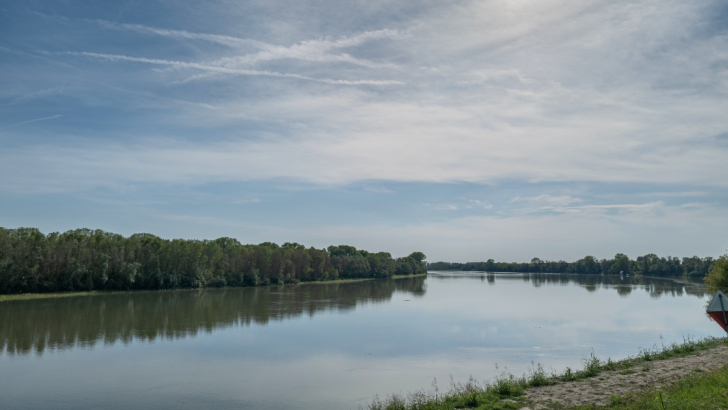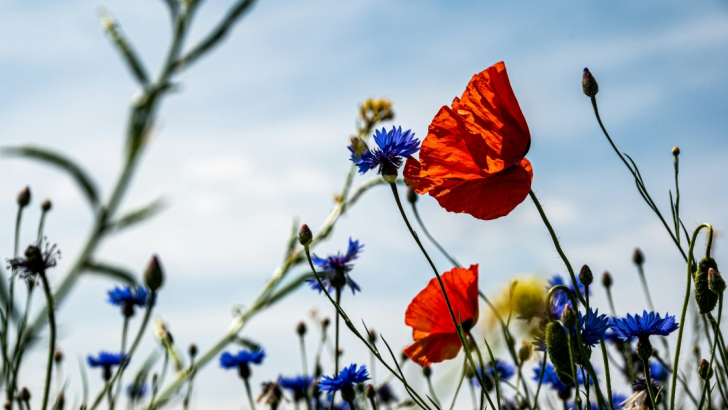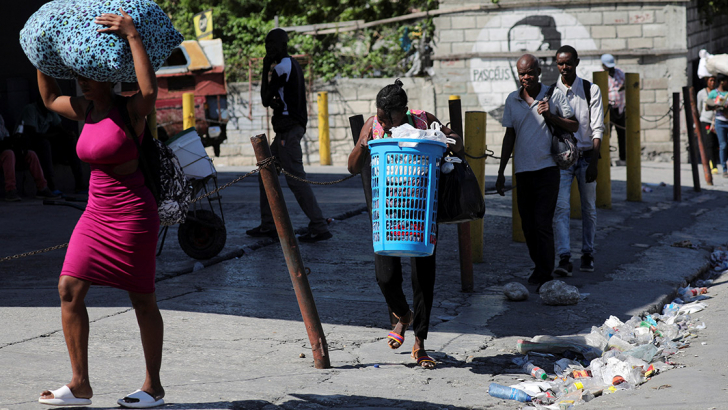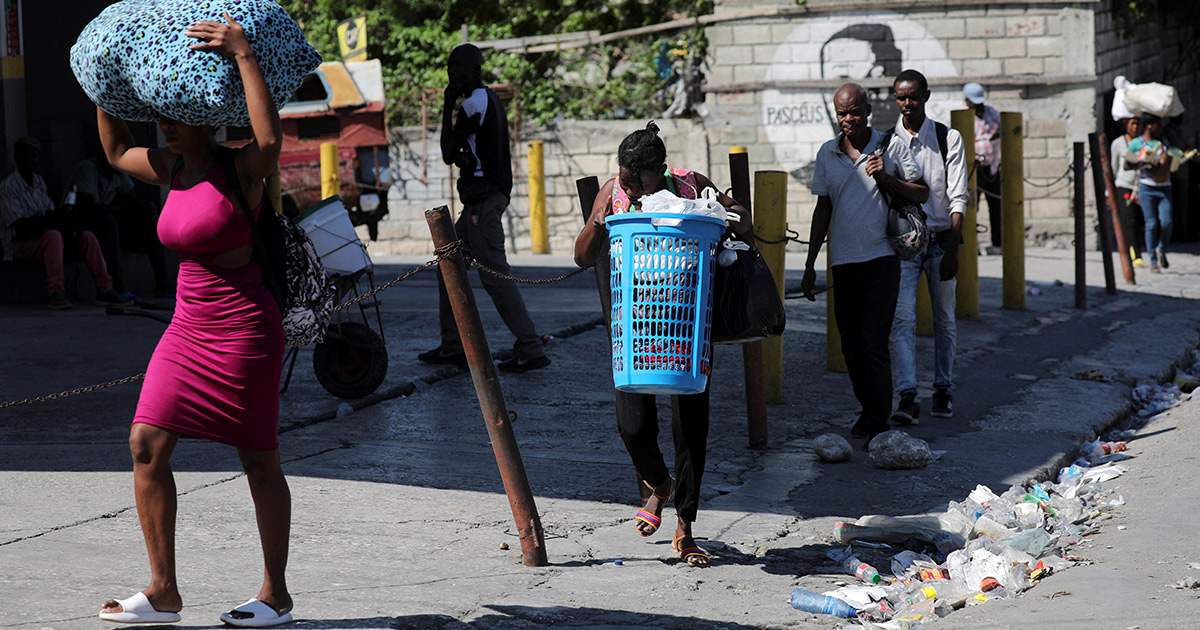
Haitians fleeing from the capital. Foto: Reuters
"We live every day with fear in our stomachs and minds. Violence is widespread and spares no one, especially in Port-au-Prince and the Artibonite department. Criminal gangs have managed, with total impunity, to control more than 85% of the capital's territory. All human and social rights are systematically violated. The state is completely absent. The abuses of armed groups have forced about 800,000 people to flee, abandoning their homes and all their belongings, seeking refuge elsewhere—in the provinces, in rural areas. Nearly all public hospitals and healthcare centres have been looted or destroyed by armed gangs. We live in terror, surrounded by horror."
From the depths of Haiti’s crisis, Colette Lespinasse's voice reaches us. A journalist, human rights activist, and correspondent for Coordination Europe Haiti (CoEH)—a platform of European NGOs operating in what was once known as the "Pearl of the Antilles"—she now reports on the country that has become the poorest and most tormented in the Americas.
For over three years, Haiti has been in a state of complete chaos. According to the latest UN estimates, at least 5,626 people were killed and more than 2,213 injured in 2024 alone. The crisis fully erupted after the assassination of President Jovenel Moïse, who was murdered in his home in the hills of Port-au-Prince on July 7, 2021. A commando of 28 hitmen—many of them Colombian—was assembled for the killing; several were later executed themselves.
Haiti is a nation repeatedly devastated by hurricanes, earthquakes, floods, deadly epidemics, endemic corruption, and poverty that now permeates every corner of the island. More than 200 criminal gangs are estimated to exist, dictating their own laws through violence. There is no functioning state—no government, no judiciary, no police force, no army capable of opposing them. Haiti no longer has an active parliament; the last elections were held in 2016. Politics is controlled by the gangs, often in collusion with political and business leaders.
In March, these gangs even formed a sort of coalition called Viv Ansanm—which translates from Haitian Creole as "living together" or "fighting together"—to force the resignation of Moïse's successor, Ariel Henry, through violence, destruction, and attacks on police stations, prisons, and government offices. The most powerful gangs include G9, led by the infamous Jimmy Chérizier, a former police officer known as "Barbecue," who recently escaped an arrest attempt by an international police contingent led by Kenya. Another dominant gang, GPep, is controlled by Ti-Gabriel and Mathias Saintil.
For many of Haiti’s poorest—especially the young, often too young—gangs provide the only escape from extreme poverty, though at a devastating cost.
In this accumulation of crises—social, political, humanitarian, economic, and health-related—only two "sectors" are thriving: drug trafficking (cocaine from South America, cannabis from Jamaica) and arms trafficking. Despite the UN Security Council's extension of a weapons embargo at the end of 2023, the gangs remain well-armed.
"We need to cut off the gangs' arms supply lines," Pierre Esperance, executive director of Haiti’s National Network for the Defense of Human Rights, told CNN months ago. "If they ran out of bullets, their machine guns would be nothing more than clubs."
CNN also reported that weapons experts analyzing footage from Haiti identified firearms and accessories from Israel, Turkey, the Czech Republic, possibly Brazil, and—above all—the United States. If weapons are still arriving, it means that someone is profiting enormously from this situation of chaos, violence, and oppression.
“ What we need now are words—to tell and fully understand what has been happening for over three years in what was once the "Black Pearl of the Caribbean"
A few days ago, U.S. Secretary of State Marco Rubio announced a special exemption to the foreign aid freeze imposed by Donald Trump upon his return to the White House. This exemption allows the release of $40.7 million in funding for Haiti's National Police and the country's multinational security mission. But the crisis remains severe. Rubio himself reiterated that the United States "will not withhold support for the peace mission" but also admitted, "As currently structured, that mission will not be sufficient to eliminate the armed groups that have taken control of much of Haiti’s territory."
While the international community is expected to step up its efforts, what we need now are words—to tell and fully understand what has been happening for over three years in what was once the "Black Pearl of the Caribbean." The first independent state in Latin America and the Caribbean, the first Black-led republic after breaking free from French rule in 1804, is today the poorest and most devastated nation in the Americas.
Among the most dramatic recent events was the incident on November 11 in Port-au-Prince. A Médecins Sans Frontières (MSF) ambulance was transporting three young gunshot victims to Drouillard Hospital—run by the humanitarian organization—when local police (not criminal gangs) stopped the MSF staff, insulted them, threatened them, and forced them to reroute to a public hospital, Hôpital La Paix. Upon arrival, the officers surrounded the ambulance, slashed its tyres, and threw tear gas inside the vehicle, forcing even the wounded to exit. At least two of them were then taken by the police to an area near the hospital and executed. MSF called it "a shocking demonstration of violence."
Another alarming incident occurred between November 11 and 12, when three U.S. planes were hit by gunfire—two during takeoff (with damage only discovered upon landing in the U.S.), and a third, Spirit Airlines Flight 951 from Fort Lauderdale, Florida, which was forced to abort its landing after being struck by multiple bullets. It later landed safely in the neighbouring Dominican Republic, which shares the island of Hispaniola with Haiti.
These events had immediate consequences. The three affected U.S. airlines—Spirit Airlines, JetBlue Airways, and Delta Airlines—suspended their flights. The U.S. Federal Aviation Administration (FAA) then banned all U.S. airlines from operating in Haiti for 30 days until mid-December. In response, Haitian authorities temporarily shut down Toussaint Louverture International Airport in Port-au-Prince.
On November 13, Médecins Sans Frontières announced the suspension of its relief operations in Haiti after more than 30 years of service. "As MSF, we accept working in insecure conditions, but when even law enforcement becomes a direct threat, we have no choice but to halt patient intake at our facilities in Port-au-Prince until we can safely resume," said MSF mission chief Christophe Garnier. "Every day without medical aid is a tragedy because we have been among the few providing vital healthcare in this extremely difficult year. However, we can no longer operate in an environment where our staff is at risk of being attacked, assaulted, or even killed."
For now, MSF's five hospitals will continue treating existing patients. But Haiti is, in reality, cut off from the world. The United Nations has begun evacuating much of its personnel via private flights to Panama. The International Organization for Migration (IOM) reported that over 40,000 people fled their homes in Port-au-Prince between November 11 and 20.
"The scale of this displacement is unprecedented since we began responding to the humanitarian crisis in 2022," said Gregoire Goodstein, IOM’s Haiti chief. "This is not just a humanitarian challenge. It is a test of our collective responsibility."
Yet even Haiti’s security forces have been implicated in serious human rights violations. According to the UN, police officers carried out more than 250 extrajudicial killings in 2024 alone—among the victims, two children.
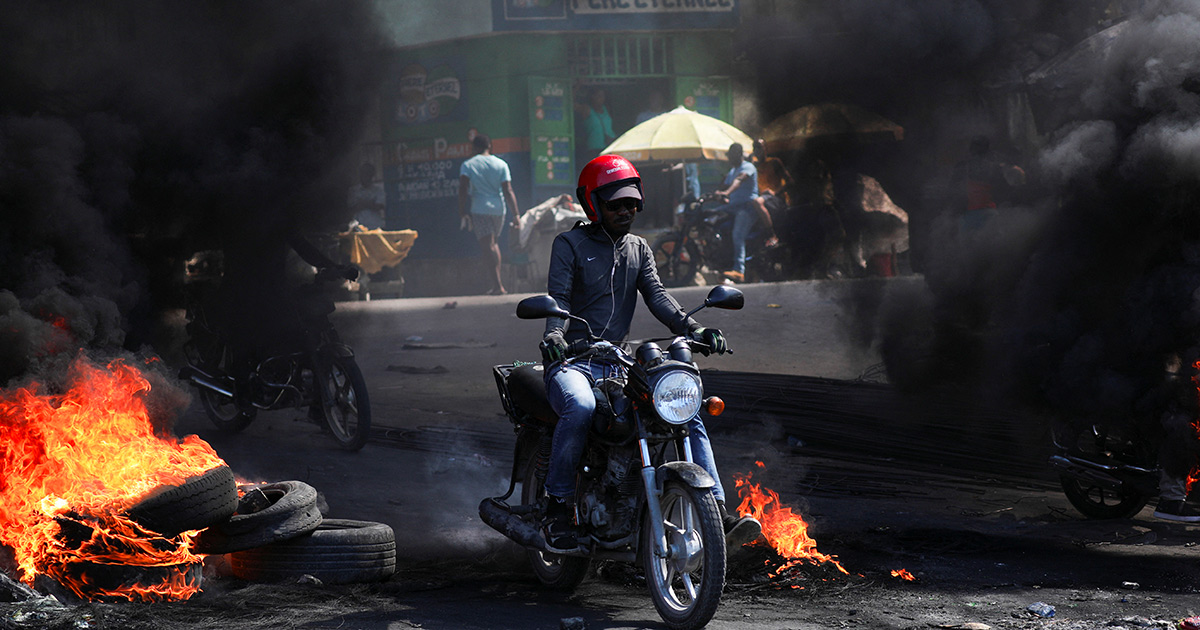
The proof of the resilience of the local population
Colette Lespinasse is proof of the resilience of the local population—at least a part of it. She embodies the refusal to surrender to the course of events, to accept the spread of violence, the daily abuses, and the denial of fundamental rights. Her commitment dates back to the 1980s and has never wavered.
She describes herself:
"I am a human rights activist and educator. I work extensively on the rights of migrants, women, and children and, more generally, on all fundamental rights to protect the most vulnerable groups, those excluded from our society. I believe respect for human rights is an exceptional indicator of humanity, justice, and dignity. It is also an effective compass to guide the actions and behaviours of those who aspire to a better world, a world of peace."
She, too, is among the displaced from Port-au-Prince.
"But I was fortunate to find a friend who took me in. I currently live not far from Pétionville, in one of the neighbourhoods that have not yet fallen into the hands of gangs. It is the second place I have taken refuge. I had built my home in Lilavois, a commune in Croix-des-Bouquets, and was living there peacefully with my family. In August 2023, following the announcement of an imminent attack by an armed group on our neighbourhood, all the neighbours fled quickly. I gathered a few belongings, and we took shelter with some friends. Two months later, we also had to leave that refuge—to go even farther because staying there was becoming increasingly dangerous, and the blocked roads made it impossible to move. During this second relocation, I placed my 89-year-old mother, who lived with me, in a nursing home about 30 kilometres south of the capital. I cannot visit her easily because the roads leading to the town where she is are blocked by armed gangs. Twice, I had to take a major detour, flying far south and then travelling by bus for three hours, covering 150 kilometres just to see her. I stay in touch with her by phone or computer almost daily, but video calls and photos can never replace the warmth of human presence."
Colette, can you tell us what life is like in Haiti today? Is it possible to get used to living with fear?
"Life in Haiti today is extremely difficult, especially for those living in the capital, in the 'Metropolitan Area,' which consists of nine municipalities. Today, only two are not yet considered 'lost territories'—meaning they are not entirely under gang control. Violence has been escalating since at least 2018. These armed groups kill, loot, rape, and block the roads leading to Port-au-Prince. After the assassination of President Jovenel Moïse, the number of gangs multiplied, and they managed to seize control of nearly 80% of the capital. They sustain themselves by kidnapping people for ransom and hijacking cargo trucks.
To avoid being targeted by bandits, we must move cautiously, avoid parties and gatherings, and only leave home when absolutely necessary. But at any moment, wherever you are, you can be hit by a bullet—whether intentionally fired or a stray shot. Stray bullets have killed countless people.
On November 16, a young girl sitting in the courtyard of her home in a residential area of Port-au-Prince (Turgeau) was shot in the head and killed by a stray bullet. Sometimes, it’s an execution carried out by a gang member who feels their business is being disrupted or simply decides to kill someone in their path.
On November 11, a young doctor—one of the few urologists left in the country—was coldly executed with a gunshot to the head, very close to her father’s clinic, where she had gone to collect some documents. On November 30, another woman was killed in cold blood, shot in the back while on a bus.
This is life in Port-au-Prince.
In Artibonite, on October 3, the residents of Pont Sondé were ambushed at night by a raid from the Grandes Griffes gang. That day, more than a hundred people were killed in their sleep, many others were wounded, and dozens went missing.
How can you not be afraid if you are human?
The abuses by armed groups have forced approximately 800,000 people to flee their homes, leaving behind all their belongings. In November 2024 alone, the International Organization for Migration (IOM) recorded more than 40,000 displaced persons following the gang takeover of Solino, a vast neighbourhood in the heart of Port-au-Prince."
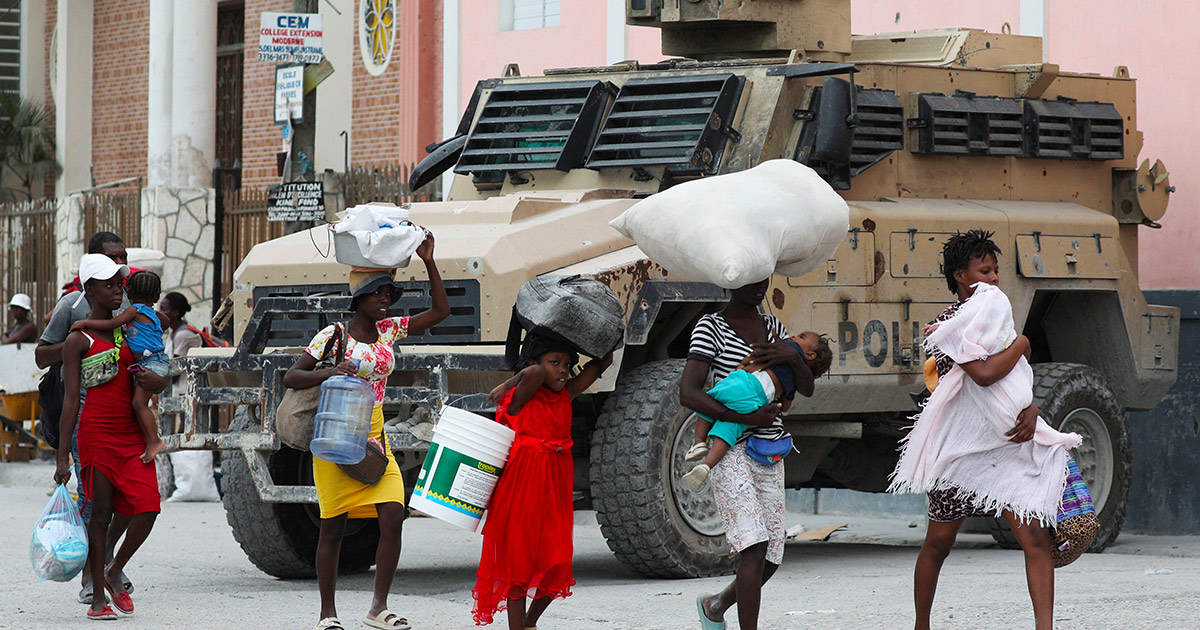
How do gangs take control of neighbourhoods?
"They always choose the most densely populated areas.
They start by kidnapping people for ransom. They commit brutal, public executions—killing in the streets for everyone to see. Then, they set homes on fire, forcing residents to flee and looting everything before seizing full control.
That is the first phase.
In the second, they impose their own laws on those who remain—those who couldn't flee. They demand 'tolls' for passage through major roads. In gang-controlled neighbourhoods, residents no longer depend on the Haitian state but on the criminals, who take on the roles of police officers, tax collectors, and judges. If they decide you are guilty of something, they impose punishments—including execution—especially if they suspect you of collaborating with the police.
This has been going on since at least 2021.
Under these conditions, many businesses that provided jobs have shut down. Street vendors can no longer open their stalls or travel to restock supplies. Even before this descent into hell, most of the population survived through informal work—precarious, unregulated activities, often their only means of survival. The gangs have nearly paralyzed these economic activities, worsening poverty across the country.
I know families who have already moved three or four times. Every time a neighbourhood is 'invaded,' people flee to other areas they believe are safer. They take refuge with relatives or move into public buildings like schools—many of which can no longer function as schools because they are now shelters for displaced families.
Life in these camps is incredibly harsh. There is little food, no clean water, and extreme overcrowding. People survive only thanks to humanitarian organizations providing food and hygiene kits."
“ In gang-controlled neighbourhoods, residents no longer depend on the Haitian state but on the criminals
Are there places where people can feel safe? Schools, churches...?
"Nowhere in Port-au-Prince is completely safe. Nowhere.
On several occasions, armed gangs have stormed churches, kidnapped people, and executed some on the spot. Many schools have been looted and no longer have the materials needed to welcome students.
According to UNICEF estimates, more than a thousand schools are now unusable, and over 200,000 children have been deprived of access to education.
Some neighbourhoods are completely abandoned—no one dares enter them. Others are still accessible but fragile. To protect themselves, residents in the remaining accessible neighbourhoods have installed large gates at entrances and exits, locking them overnight until morning.
The safest areas right now are rural towns and provincial centres. Despite repeated attempts, the gangs have not yet established themselves there. In these areas, people still celebrate, stay out late, and go about their daily activities in peace—but they remain vigilant. Many residents from the capital have taken refuge with relatives in these provinces, putting enormous pressure on the limited resources available.
Which countries are closest to Haiti in terms of support and aid?
"This is a difficult question.
Haiti has relationships with several countries in the Americas, Europe, and—though to a lesser extent—Africa, but almost none with Asia.
The countries that have the most influence on Haiti are former colonial or occupying powers, making relations tense and marked by distrust.
The U.S. occupied Haiti for 19 years (1915–1934), and the negative effects of that occupation are still evident in public institutions and political infrastructure. The U.S. considers Haiti part of its backyard, denying it genuine self-determination. Many Haitians do not understand why the U.S. has historically supported coups, rigged elections, and corrupt elites that deepen poverty and exclusion.
France, Haiti’s former colonial power, maintains diplomatic ties but has seen its influence decline. Many voices are now demanding that France return the so-called 'independence debt' Haiti was forced to pay for over a century.
Meanwhile, Cuba and Venezuela have had the most positive collaborations with Haiti. Cuba has sent healthcare and agricultural workers who have integrated into local communities, while Venezuela's PetroCaribe program provided Haiti with fuel under favourable conditions—funds that could have supported infrastructure and social programs if not for corruption among Haiti's ruling elites."
Is it possible to practice journalism in Haiti today? What are you reporting on, and most importantly, to whom?
"Journalists in Haiti are working hard to maintain press freedom and freedom of expression—rights that were won through hard struggles during the Duvalier dictatorship. In this sense, radio stations and newspapers continue to produce content and remain critical. They do everything they can to inform people about crucial issues affecting them. However, journalists increasingly resort to self-censorship more often, avoiding certain topics for fear of their own safety.
The biggest issue today is access to information. Journalists cannot reach certain places, especially those controlled by armed groups, which limits their coverage and the ability to investigate. People tend to rely on social media for news, particularly TikTok, where all kinds of information circulate—often false—but where users can freely comment on events.
Even the armed groups themselves extensively use these platforms to spread hate messages and instil fear in the population. Sometimes, these messages are transmitted or supported by actors based in other countries, such as the United States.
A while ago, the National Telecommunications Council (CONATEL) announced the suspension of a political commentary program on Radio Méga because it extensively amplified the voices of gang members, highlighting their activities. Some have called for the decision to be reversed, arguing that it undermines press freedom. Others believe it was justified, considering the violence these gangs inflict on the population.
As for their living conditions, journalists and media workers face the same struggles as the general population: scarce resources, gang violence, forced relocation of news outlets, and loss of equipment. Many journalists work remotely.
Even journalists have been kidnapped. In 2023 alone, at least five were held hostage for several days, and their families had to pay large ransoms for their release.
Most programs are in Creole, and the most followed ones include news reports, political analysis, and religious discussions. Some programs also provide health advice or feature popular music for entertainment.
I host a weekly radio show on agroecology, environmental protection, and sustainable agriculture. It's called 'Pou Demen Ka Bèl' ('For a Better Tomorrow'). I cover topics related to climate change, the efforts of farmers to continue feeding the country, and the crucial involvement of various groups in environmental conservation. I promote eco-citizenship, encouraging positive behaviours, advocating for new policies to steer the country in a better direction, and providing knowledge and practical advice to help build the future we all desire.
“ Major foreign media rarely talk about Haiti, and when they do, they portray the country either as a victim or as a child incapable of making decisions or managing its own problems Colette Espinasse
What do international media fail to understand about Haiti?
"Major foreign media rarely talk about Haiti, and when they do, they portray the country either as a victim or as a child incapable of making decisions or managing its own problems. The deep-rooted causes of Haiti's recurring crises are rarely mentioned. Instead, the same solutions—repeatedly proposed and repeatedly failing—are presented as miracle cures, such as the many United Nations missions deployed here over the past 20 years.
Through CoEH and other communication spaces where I advocate, my fight is to highlight the severity of the situation and amplify civil society's voices so that our solutions can finally be heard."
How serious is the suspension of services announced by Médecins Sans Frontières? Who will provide healthcare now?
"The incidents in November, where patients were attacked while being transported in MSF ambulances, are deplorable and unacceptable.
MSF's decision is a devastating blow for the population, especially the poorest, who often relied on MSF's emergency services, particularly for gunshot wounds and road accidents, which are alarmingly common.
In the warlike environment we are living in, nearly all public hospitals have been looted or destroyed by armed groups.
It is not the first time MSF has had to suspend its services in the capital due to attacks on its facilities or staff—either by bandits or police officers. But in the past, after a period of relative calm, they have always resumed operations.
Negotiations are underway with the Ministry of Public Health and Population (MSPP) to restart services, but MSF is demanding assurances from the highest state authorities. After all, the most recent attacks on its ambulances and personnel were carried out by uniformed members of the Haitian National Police."
Is gang violence truly increasing, as reported by the media? MSF staff also reported receiving death and rape threats.
"Yes, gang violence has escalated significantly in the last months of 2024, and what the media are reporting is true.
Beyond the actions of the gangs, we also have self-defence groups trying to protect themselves from criminals, as well as interventions from law enforcement forces.
From January to September 2024, around 5,000 people were killed, according to figures published by various organizations. The arms trade has not slowed down, as evidenced by the high levels of armed violence and the new weapons that gangs are showing off.
But civilians, too, are increasingly seeking ways to ensure their safety, sometimes resorting to private security firms, such as the 'Protected Areas Surveillance Brigade,' which operates independently of the national government."
Are women and children being recruited into criminal gangs?
"Women and children are among the primary victims of this escalating insecurity.
Although no official data is available, humanitarian and human rights organizations, as well as government officials, estimate that at least 30% of gang members are minors.
'Children participate in criminal activities ranging from extortion and looting to espionage and severe violence, including murder and kidnapping,' wrote Human Rights Watch in a report published in September 2024.
Many children involved in criminal groups have stated that hunger was the main reason they joined or that their families had no choice but to allow it. These gangs often become their only source of food, income, and shelter.
Girls forced into gangs are particularly vulnerable to sexual violence. They are often exploited as domestic workers—cooking and cleaning in gang members' homes.
During the day, they are also responsible for errands and transporting weapons and ammunition. According to several local human rights workers, girls are often released after some time—usually when they become pregnant as a result of rape.
In this context of extreme violence, sexual assaults on girls and women are rampant. Rape is used as a form of punishment and a display of gang power. When a gang seizes control of a neighbourhood, they also seize control of women's bodies."
How can Haiti escape this situation? What should the international community do to help restore peace?
"The crisis we are experiencing in Haiti is the latest chapter in a deep, structural crisis that has remained unresolved since the birth of our nation.
To overcome this, we need long-term strategies with gradual short-term actions.
We need public policies aimed at reducing the extreme poverty that affects over 90% of the population. Strategies for wealth redistribution and greater inclusion of marginalized groups—such as farmers and women—are essential.
Poverty is the perfect breeding ground for violence to flourish.
We also need public policies focusing on children, youth, and women. The state's abandonment of young people in impoverished neighbourhoods—leaving them idle, without opportunities—has allowed the mafia to infiltrate their lives, corrupting them and dragging them into criminality.
What role should the international community play?
First and foremost, it must acknowledge its repeated failures in Haiti and allow Haitians to take control of their own destiny and forge their own path.
Of course, external support will be needed, but it must be defined, channelled, and organized by Haitians. Past interventions were often self-serving and dictated by outside interests, and they ultimately weakened Haiti's structures, making them more dependent and vulnerable.
Achieving this requires strong and assertive leadership—something we still struggle to find.
Future elections are expected, possibly in 2025 or 2026. We hope these elections will bring to power men and women who truly understand the country's reality.
The responsibility lies in our hands, and we must work with the people to emerge from this harsh reality."
What does the future hold for you? Resignation, anger, hope?
"The future is unclear.
I am angry—angry at the countless failures, incompetence, and inaction of those in power.
I am disappointed by the behaviour of some people we once believed we could rely on.
I increasingly understand Haiti’s political system and its ability to fuel violence.
The mafia system has taken control of the state, leaving no room for actions that benefit the poor. Its strong ties with foreign countries allow it to sustain itself and perpetuate its rule.
I firmly believe that without breaking away from this system entirely, we will never escape this cycle of misery and suffering to build something new.
This break must first happen in our minds, hearts, and actions—by rejecting privilege and standing in solidarity with the suffering majority to bring about change.
As for me, I will not give up."


